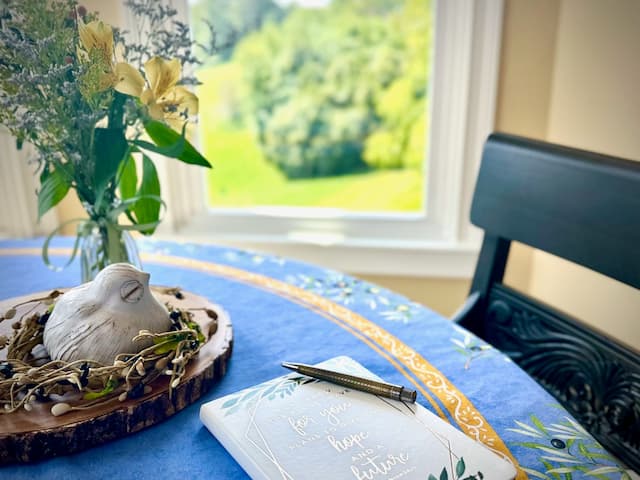How Can Your Temperament Help You?
Are you like me and thought that temperament and personality were the same things?
Before my licensing with the National Christian Counseling Association, I did not think it really mattered. What I learned is that temperament can tell us a great deal about ourselves and how we relate to the world. It can also tell us what things stress us out and what we need to function well.
In other words, knowing your temperament is a big deal.
So, what is it?

What is temperament?
Temperament is the inborn parts of us. It is part of who we are when we were created. It will determine how we react to people, places, and things. It will determine how we interact with our environment.
Temperament + life experience + environment = personality. Did you know that we actually choose our personality? Depending on the above factors, your personality will be developed by age 3.
Temperament theory has been around for many years. I am sure there are even free tests online. However, the organization I am with discovered a 5th temperament, they understand there are blends, and that temperament may be different depending on the area of your life such as work friendships/acquaintances, decision making, and close relationships.
To fully understand your temperament you will need to take an Arno Profile System (APS) exam given by someone trained and certified. They are short, inexpensive, and give you 6 pages worth of info.
I have found that learning your temperament can help you tremendously! It can explain why you do things or feel a certain way.
If you are my client, it can also help me help you even more. It can help me understand you and your stressors. It can help tease out inborn struggles versus woundedness.

Let’s take a brief look at the 5 pure temperaments (there is MUCH more to these temperaments than I have written below). Remember most people have a blend of these, which we will not go into here.
Sanguines. Ahhh, many of us love having a sanguine in our lives. They are sunshine on a cloudy day. Lots of energy, loves people, would rather socialize than work unless they are working with people. Sanguines like to be the center of attention and often command a room. While Sanguines are fun and lighthearted they can also get really angry sometimes.
Supines. Supines are your helpers. They are always there to lend their hand, to support you, and encourage you. They may appear quiet, but they are just waiting for an invite to join in.
Cholerics. These are the leaders. They are good at tasks and handling people. Cholerics are hard workers and charismatic. They prefer to get their way and can use tactics to make sure they do.
Phelgmatics. The peacekeepers. They are your steady eddies. They will not rock the boat. They often have great ideas, but since they are so laid back, they do not often follow through.
Melancholies. They may see the glass half empty, but they are super creative, minds rarely turn off because they are always thinking, and they can easily visualize things. They are selective in who they let into their inner circle due to their introverted nature.
Each of these temperaments has great things to them and challenges. The challenges are where we can fall into sin. They can also be areas that cause us great stress.
In addition, these temperaments all have different needs. One temperament needs downtime each day while another needs to be thanked and encouraged every day.
Before I took the test, I thought I had myself figured out pretty well. I had taken personality tests before and they all made sense as to the things I was drawn to.
This is different. This test answered questions I had about myself such as why I acted or felt in certain situations. This was so helpful to me. I understood why I had challenges (not all due to childhood issues) and learned how to deal with and grow through them. This has helped my interactions with others and my marriage.
Imagine you are married to someone with a different temperament than you (like most couples). It is very easy to fall into a stress pattern because you do not understand each other and what each other needs.
Here is the interesting thing…..sometimes people have developed personalities that mask their temperament.
Let’s meet Lilly. Lilly shared that she was in marketing with a large marketing team that she managed. Lilly was friendly and her coworkers really enjoyed her. The problem was, Lilly was a melancholy with her work relationships. Which meant that people exhausted her. She developed a personality as a fun-loving person, but in reality, was an introvert that preferred tasks over people.
Lilly saw me because she was so tired and unfulfilled at work she was not sure what to do. Lilly did well at her job because of her creative nature but was dying inside from people sucking the energy from her. Lilly needed a drastic change in her life.
She needed to be in a job where she could use her skills but not have to work closely with her colleagues. After learning her needs, she was able to talk to her supervisor about the changes that were necessary for her. Thankfully her employer was able to make some adjustments so that Lilly could function better in her job.
Are you curious about what temperament(s) you have in the different areas of your life? What about learning about your spouse?
Are you engaged? I HIGHLY encourage you and your future spouse to each take the test. This can cut down on SO. MUCH. STRESS. in your upcoming marriage.
Find a temperament counselor that can give you the Arno Profile System test! It is fast and you may be quite surprised by the results. I am certified in temperament counseling and can do this for you via video counseling if you are not local.
Bless. you on your journey!











